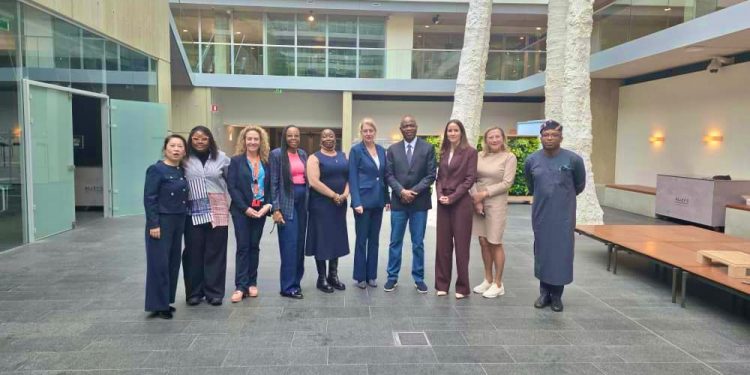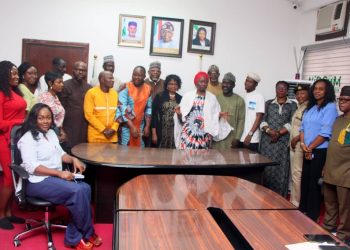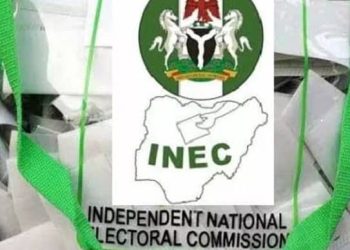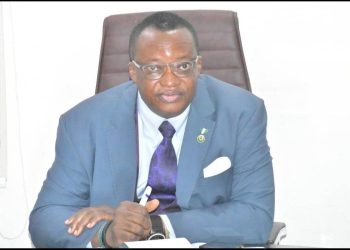By Nkechi Eze
In yet another demonstration of Nigeria’s growing international engagement in Customs modernization, the Comptroller-General of Customs, Bashir Adewale Adeniyi, has led a high-level delegation of the Nigeria Customs Service (NCS) to the Netherlands for a bilateral working visit aimed at deepening cooperation on trade facilitation, compliance management, and institutional reforms.
The strategic visit, which took place between October 29 and 31, 2025, featured a series of intensive technical sessions, policy dialogues, and institutional briefings with Dutch Customs officials, underscoring both nations’ shared commitment to advancing global best practices in border management and trade efficiency.
The mission commenced at the Dutch Customs Headquarters, Laan op Zuid in Rotterdam, where the Nigerian delegation was warmly received by senior officials of the Netherlands Customs Administration. The engagements began with a detailed presentation by the National Tariff Classification Team (TeamLTT), led by Ed Tulp, who elaborated on the Netherlands’ structured approach to tariff and origin procedures. This was followed by an in-depth session on risk management delivered by Dennis van der Wolk of the Customs National Tactical Centre (DLTC), which focused on the Dutch model for risk profiling, cargo monitoring, and tactical decision-making in Customs operations.
Speaking after the presentations, CGC Adeniyi described the sessions as insightful and transformational, noting that they provided valuable lessons on how structured collaboration and data-driven analysis can enhance compliance, trade facilitation, and security outcomes. “The presentations have been particularly insightful in showing how systematic collaboration and data-driven analysis can enhance compliance and trade facilitation across borders,” he said. “The Nigeria Customs Service remains committed to adopting international best practices that balance enforcement with facilitation, ensuring that legitimate trade thrives while revenue and security interests are safeguarded.”
The NCS delegation also held strategic meetings with the Head of International Affairs at the Netherlands Customs, where discussions centered on enhancing inter-agency coordination, capacity-building programmes, and digital trade processes. The engagements reflected a growing partnership focused on shared learning, transparency, and modernization in Customs administration.
At Schiphol Airport, one of Europe’s busiest air freight hubs, the Nigerian delegation received a comprehensive briefing from Schiphol Cargo officials on air cargo clearance, classification systems, and pre-arrival processing. The visit offered firsthand insights into the Netherlands’ use of automation and coordinated border management in handling high-volume cargo with efficiency and transparency.
Deputy Comptroller-General Caroline Niagwan, who heads the NCS Tariff and Trade Department, commended the Netherlands for its well-structured systems, emphasizing that the practical knowledge gained will directly inform Nigeria’s ongoing modernization drive. “The practical insights gained here will be instrumental in improving Nigeria’s own cargo handling systems, especially within our ongoing modernization efforts,” she noted.
The bilateral engagement continued at the Netherlands Ministry of Foreign Affairs, where the delegation was hosted by the Director-General of International Trade, Mr. Machiel Zweers. Discussions at the meeting explored frameworks for technical assistance, capacity development, and knowledge exchange between both Customs administrations. Zweers lauded the visit as “a new chapter of institutional partnership built on trust and innovation,” reaffirming the Netherlands’ readiness to work closely with Nigeria in promoting trade facilitation and sustainable development.
The delegation later visited the Netherlands Ministry of Finance for a high-level wrap-up session that reviewed the outcomes of the engagements and discussed mechanisms to formalize future collaboration in tariff classification, risk management, trade facilitation, and gender equity in Customs operations. CGC Adeniyi described the meeting as “a constructive platform to consolidate lessons learned and translate them into practical frameworks that will strengthen Nigeria’s Customs modernization programme and compliance culture.”
The bilateral mission concluded with a guided tour of the Port of Rotterdam (Portlandis), where the NCS team observed the port’s integrated logistics operations, advanced cargo-tracking technologies, and intermodal transport systems. The visit, according to CGC Adeniyi, was an “eye-opener” on the possibilities of synergy between Customs and port authorities in driving economic growth. “This engagement has provided us with a clearer picture of how modern Customs administrations can achieve efficiency through partnership, technology, and shared expertise,” he stated.
Similarly, DCG Niagwan described the experience as a valuable opportunity to witness global innovation in Customs operations. “The Netherlands model demonstrates that inclusivity, data intelligence, and inter-agency trust are indispensable elements of an effective Customs system,” she said.
The working visit, anchored on diplomacy, institutional learning, and mutual respect, not only deepened Nigeria’s partnership with the Netherlands but also reaffirmed CGC Adeniyi’s commitment to transforming the Nigeria Customs Service into a world-class institution driven by technology, collaboration, and professionalism.
Members of the CGC’s delegation included DCG Caroline Niagwan, DCG in charge of the Tariff and Trade Department and Chairperson of the Service’s Gender Equality Programme; Deputy Comptroller Etim Ibok, Special Assistant to the CGC; Assistant Comptroller Abdullahi Maiwada, National Public Relations Officer; and Assistant Comptroller Lauretta Utubor, Team Lead of Nigeria’s Advance Ruling System, among others.
Through these engagements, the Nigeria Customs Service continues to demonstrate a forward-looking vision under the leadership of CGC Adewale Adeniyi, one that combines reform-driven diplomacy with a practical pursuit of operational excellence, ensuring that Nigeria remains a trusted partner in global trade and a leader in Customs innovation across Africa.

















